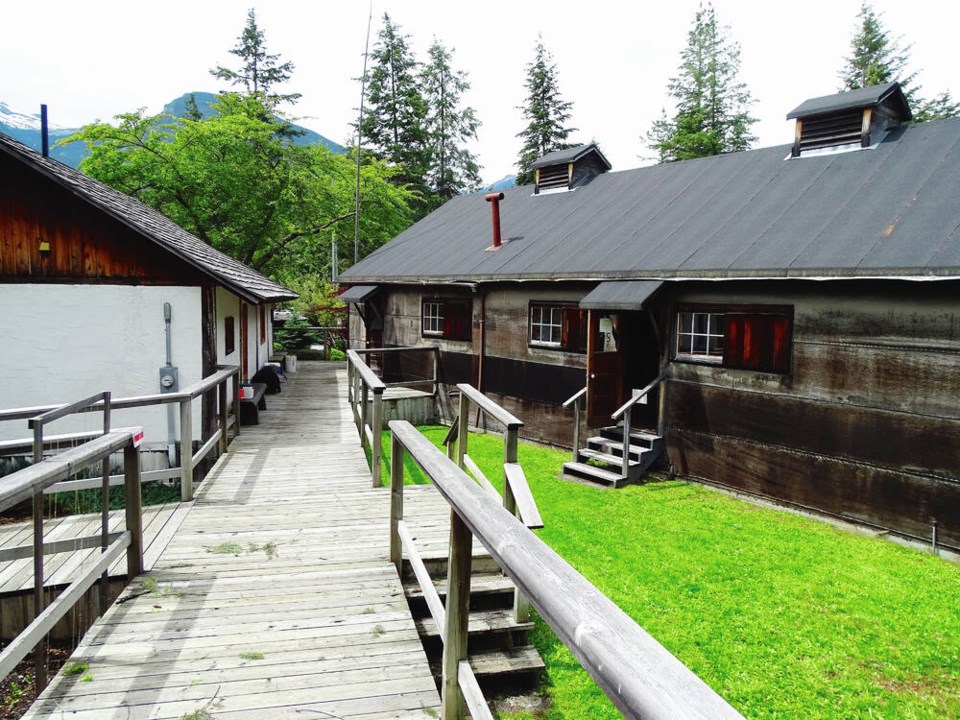A commentary by an associate professor in the Department of Political Science at the University of Victoria, adapted from research produced for the Past Wrongs Future Choices research collective.
On the day after the 9/11 attacks, I was an inexperienced university instructor facing a class of concerned students.
One kicked off our discussion by saying that her mom was worried that “they’re going to do to the Muslims what they did to the Japanese.”
I knew about the internment and dispossession of property visited on Japanese Canadians after Pearl Harbor in the Second World War. Because I knew this, I was able to explain what the student’s mom meant.
The Japanese-Canadian example showed that, without vigilant awareness of past wrongs, legitimate national security concerns can slide all too easily into authoritarian responses and the demonization of vulnerable groups.
This history came so readily to mind because 13 years earlier, on Sept. 22, 1988, the federal government had responded to Japanese-Canadian activism with Canada’s first political apology and an historic redress agreement.
This precedent has since served Canadians, as it did our class, as a memory-jogging device, also known as a mnemonic. The mnemonic of redress reminds us to worry about racism in security crises.
Even before securing redress, Japanese-Canadians had made remarkable contributions to rights protection in this country.
Mobilizing under the slogan, “never again,” itself a mnemonic stemming from the ongoing struggles against fascism and antisemitism in the wake of the Nazi genocide, Japanese Canadians were Canada’s most influential advocates, first, of the 1982 Charter of Rights and Freedoms and, subsequently, of the 1988 Emergencies Act, now regarded as the most rights-protective emergencies legislation in the world.
Japanese-American survivors of the post-Pearl Harbor policies of mass incarceration and total deprivation of civil liberties in the United States also fought successfully for apology and redress.
And for a few months following the 9/11 attacks, the mnemonics of those earlier struggles appeared to be having an impact.
At the urging of his transportation secretary, Norman Mineta, a former incarceree and redress activist, President George W. Bush visited Washington’s Islamic Center six days after the attacks. He condemned Islamophobia and praised Islam as a religion of peace.
The New York Times and Wall Street Journal also featured dozens of cautionary invocations of the Japanese-American experience in the three months after 9/11, repeatedly citing the Japanese-American incarceration to warn against authoritarian overreactions.
We know that these warnings failed to prevent the Islamophobic War on Terror and illegal invasion of Iraq.
But Canadians should also know that our opinion leaders cared little for the mnemonics of redress in their immediate reactions to the 9/11 attacks. Rather than citing the internment in cautionary ways, many complained that the legacy of redress was impeding appropriate security responses.
For example, while his U.S. colleagues were remembering internment to counsel restraint, one leading Canadian columnist grumbled about “politically correct agonizing” over past wrongs, insisting that it was common sense to focus security measures on young men “dark of skin and strange of name.”
Another defender of racial profiling complained that, having “abjectly apologized and made reparations,” Canadians were now allowed to “look askance at no one lest we be deemed racist or narrow-minded.”
The sad irony is that Canadians would soon have to reckon with the precedent of Japanese-Canadian redress.
This reckoning came in 2007, when the federal government was forced to compensate the innocent Canadian, Maher Arar, who had suffered torture and extraordinary rendition to Syria after falling victim to precisely the Islamophobic racial profiling that Canadian hawks had been demanding.
Today, the lessons of redress are more important than ever. The mass murder of six Muslim worshippers in Quebec City on Jan. 29, 2017; the massacre of four Muslim family members in London on June 6, 2021 — these Canadian atrocities are part of the grim harvest of post-9/11 Islamophobia.
In the U.S., Donald Trump’s 2016 presidential campaign called for a ban on Muslim immigration and for a registry of Muslims present in the United States.
Shrugging off the redress precedent, Trump found inspiration in the internment. Invoking his Second World War predecessor, Franklin Delano Roosevelt, Trump declared, “This is a president highly respected by all; he did the same thing.”
This month, while remembering the awful attacks of 9/11, we must also keep alive the memory of internment redress. It is a vital call to non-repetition and decency in dangerous times.
>>> To comment on this article, write a letter to the editor: [email protected]



